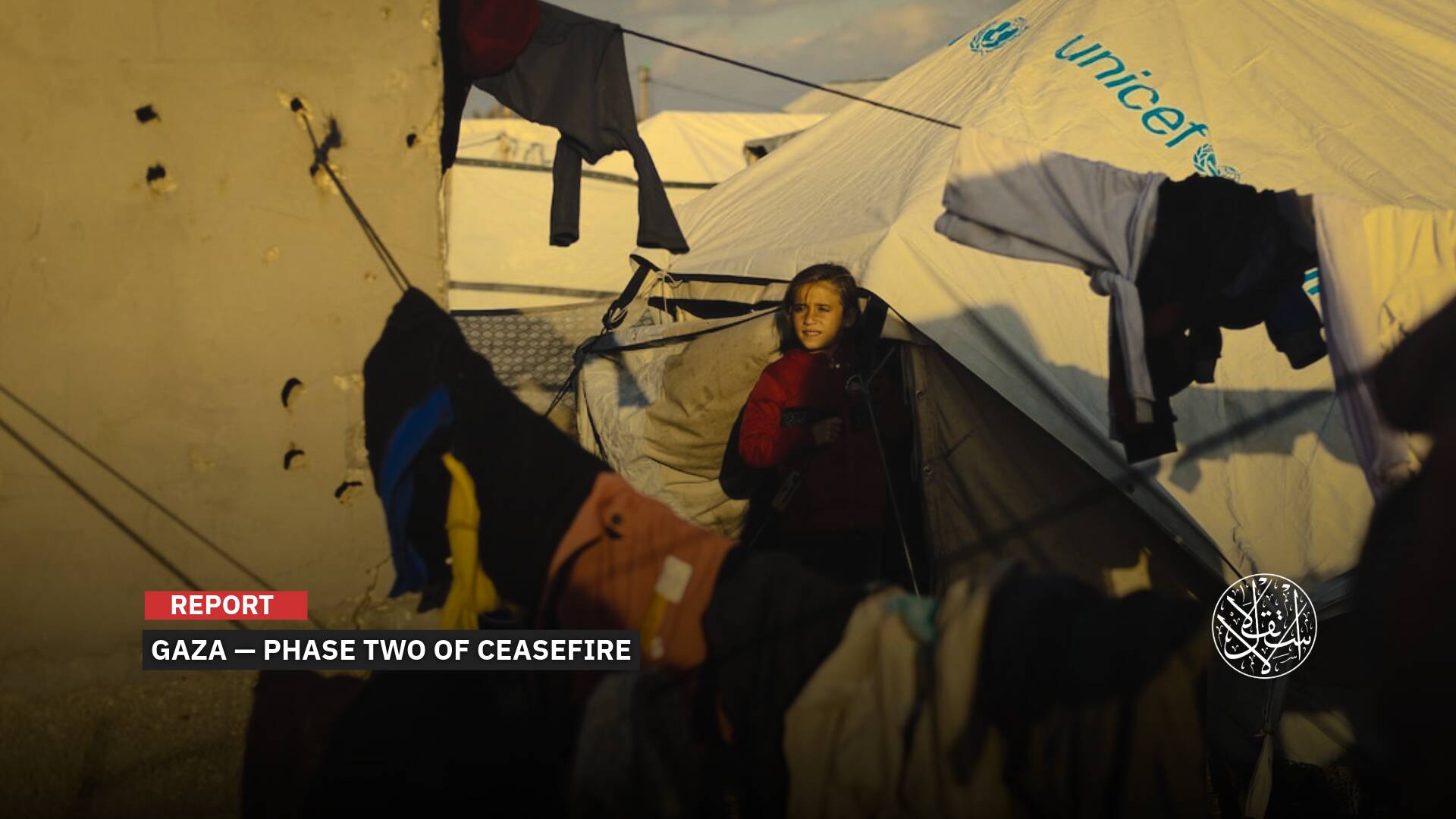Amid a Wave of Discontent and Panic, How Electoral Violence Threatens the Future of American Democracy

The recent attack on the husband of US House Speaker Nancy Pelosi sparked a wave of discontent and panic in the United States and united the ranks of Democrats and Republicans who condemned political violence, especially with a joint US intelligence bulletin warning of a growing threat of ideologically motivated violence during the midterm elections.
Where threats and harassment against politicians, legislators, and election officials, in particular, are increasing because of the worsening political polarization environment in American society for years, what politicians describe as harsh language and misinformation spread through social media and some media outlets that infiltrate political speech and prepare the ground for real violence.
Political Violence
The Guardian newspaper saw that the attack that targeted the house of the US House Speaker and resulted in the injury of her husband, Paul, is the latest in a series of violence and threats less than two weeks before the midterm congressional elections, which have heightened fears of an escalation of political violence in the country.
The newspaper reported that the aforementioned attack comes amid an alarming escalation of violent speech and threats targeting US legislators, judges, and political candidates.
The newspaper said that "as Americans prepare to go to the polls on November 8, many experts and observers have warned of the danger of political violence. Where the elections are being held in an atmosphere of conspiracy and intimidation, amid widespread right-wing allegations of voter fraud and persistent accusations devoid of evidence that the 2020 elections were stolen."
The Guardian quoted CNN that it said the attacker apparently intended to target the House Speaker, who was not in San Francisco at the time of the attack. Reportedly, the suspect entered her home shouting, "Where's Nancy, where's Nancy?"
According to a report in the Los Angeles Times, the US Capitol Police have reported an overall rise in the number of threats against members of Congress since the January 6 rebellion of last year.
According to the Capitol Police, threats against elected members of Congress have doubled since the inauguration of Republican billionaire Donald Trump, rising from 3,939 in 2017 to 9,625 in 2021.
The newspaper added that although Democratic and Republican lawmakers have faced a number of threats in recent months, the increase has not been distributed evenly across the political spectrum.
According to a study by the Anti-Defamation League, "right-wing extremists have committed about 75% of the 450 political murders that have occurred in the United States over the past decade, compared to 4% attributable to left-wing extremists."
It added: "The storming of Congress on January 6, carried out by a group of supporters of former President Donald Trump, in an attempt to disrupt the ratification of Joe Biden's victory, provided a live example of the danger of right-wing extremism; as a bipartisan Senate report concluded that seven people were killed by the incident."
"The attack on Pelosi's husband had prompted calls for Republican lawmakers to condemn the use of threats and violence against political opponents," the newspaper said.
Adam Kinzinger, the Republican member of the House Select Committee to Investigate the January 6 attack, whose family received death threats because of his work with the committee, was quoted as saying: "The attack on Paul Pelosi by a man obsessed with electoral conspiracies is a serious fact encouraged by some members of my party. This should be condemned by every member of Congress."
Speaking before the US Congress, Rachel Kleinfeld, a senior fellow in Carnegie's Democracy, Conflict, and Governance Program, warned that "acceptance of political violence has increased sharply over the past five years."
Kleinfeld said that violent beliefs and activities are becoming commonplace, noting that an escalation of politically motivated violence should be expected during the upcoming election seasons.
According to Kleinfeld, there are four factors that increase the risk of election-related violence; firstly is highly competitive elections that can shift the balance of power, secondly is the partisan divide based on identity, thirdly is electoral rules that help to win by exploiting identity divisions, and finally, the weakness of institutional constraints on violence.

Ideological Motives
Even more alarming in political circles, the number of recorded threats against members of Congress has increased more than 10-fold since 2016, according to Capitol Police figures.
Meanwhile, a joint bulletin from US security agencies warned of an increased threat during the current electoral contests, which are fueled by the rise of violent extremism across the country, with ideological motives and with the aim of reaching potential targets, according to what was reported by the nation's public radio (NPR) on October 29, 2022.
It specifically cautioned against single actors that it said pose the most threat with the increase of domestic extremism and said that they are mostly motivated by the idea of rigging the elections, which Joe Biden won over his opponent, Donald Trump.
The bulletin indicated that they may target election-related websites in the hope of influencing the vote, undermining perceptions of the legitimacy of the voting process, or provoking a government response.
The FBI says states that are likely to see calls for an election review and recount, such as Arizona, Georgia, and Pennsylvania, are likely to see some electoral violence.
There were reports of threats and harassment against election officials in 50 of the 67 counties in crucial Pennsylvania against themselves and their families, while in Arizona, there were six complaints of attempts to intimidate voters from participating in the state's early voting process.

In turn, Assistant Professor at Chapman University Peter Syme said: "What we are seeing now is a whole set of indications that the United States has already reached a crisis point, in light of the increasing signs of the growing threat of political violence."
Among the most prominent examples of threats that have spread to every corner of the political spectrum, is the appearance of a man armed with a pistol and shouting threats and profanity outside the home of Democratic Representative Pramila Jayapal.
In addition to an anonymous visitor smashed the window of Republican Senator Susan Collins, setting her off an alarm earlier this year that she wouldn't be surprised if a senator or a member of the House of Representatives was murdered.
Meanwhile, Republican Representative Liz Cheney, who was disavowed by her party for joining a parliamentary committee investigating Donald Trump, was forced to abandon any major campaign rally in her state of Wyoming because she received death threats.
It is noteworthy that acts of violence against US elected officials are not new. In January 2011, Democrat Gabby Giffords was nearly killed after being shot in the head at close range during a meeting with citizens in Tucson.
A study issued in May of this year by the Center for Strategic and International Studies (CSIS) said that "the government, the military and law enforcement agencies, in particular, were the main targets of local attacks, in 2021, and these attacks accounted for 43% of all attacks."
According to the CSIS study, "there was an increase in the number of attacks and plots by anarchists and anti-fascists in 2021, which rose from 23% in 2020 to 40% in 2021."

Extremism and Chaos
Days before the crucial midterm elections in the country next week, Biden's camp is trying to highlight more the dangers of political violence that have become a major threat to American democracy in light of a sharp partisan divide.
This was evident in the Democratic president's speech on November 2, 2022, where Biden called on Americans to unite against political violence and voter intimidation, warning of the rise of Republican extremism.
He warned that the refusal of some Republican candidates to accept the results of the midterm elections was paving the way for chaos.
Biden said in excerpts published by the White House: "There are candidates competing for positions at all levels in America, but they are not committed to accepting the results of the elections they are running."
"It paves the way for chaos in America... which is unprecedented, illegal, and un-American," he added.

In a previous report, Agence France-Presse indicated that in the midst of the midterm election campaign, violence can be observed in particular in the electoral ads of some candidates.
According to an analysis by the Center for Progressive Labor Fund (CPL), "at least 104 ads aired this year feature a conservative candidate with a handgun or assault rifle."
In some of these ads, candidates enjoy pointing guns at pictures or dolls representing their Democratic opponents.
On its part, Politico indicated that "there are political terrorists who do not need official organizations to recruit and indoctrinate them with ideas because they get these ideas easily from the internet, and there are prominent political figures who support those ideas."
A report by the Center for Southern Studies stated that "the reactionary and racist beliefs that prompted some to storm the Capitol have not dissipated, and that extremist groups have found ways to insert themselves into mainstream politics."
Former US President Donald Trump has returned to questioning the mechanisms of American democracy, as he made allegations in early November 2022 that elections in the swing state of Pennsylvania were being rigged, according to Agence France-Presse.

Some experts find it difficult to control the pace of political violence due to some constitutional restrictions that impede the work of law enforcement authorities, especially with regard to freedom of expression and the promotion of conspiracy theories, and the right of citizens to obtain firearms.
The first constitutional amendment granted American citizens freedom of worship and speech, the press, and the right of assembly and prohibited Congress from passing any law that would limit these rights, while the second amendment protected the right to own arms and form a local militia.
These amendments make it difficult for the US authorities to stop people from spreading fake news on social networks, including many conspiracy theories, at a time when they do not have any power to prevent these same people from acquiring advanced firearms.
Sources
- ‘Somebody’s going to die’: Democrats warn of political violence after Paul Pelosi attack
- Attack on Pelosi’s husband is seen as latest example of rising political violence
- Ahead of Election Day, U.S. agencies warn of potential attacks by extremists
- Remarks by President Biden on Standing up for Democracy
- The troubling future of political violence in America
- Pushed to Extremes: Domestic Terrorism amid Polarization and Protest [Study]
- The Rise in Political Violence in the United States and Damage to Our Democracy [Research]
- The Year in Hate & Extremism Report 2021









